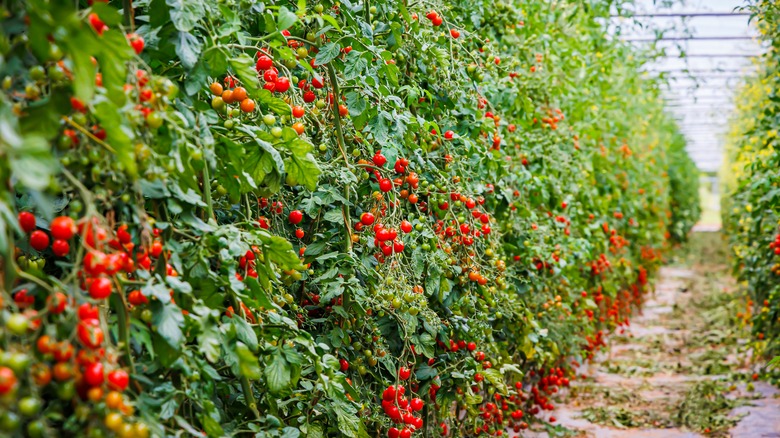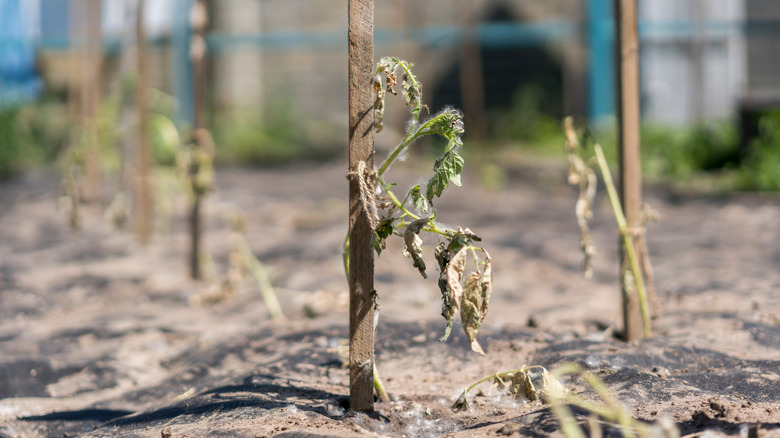Why The US May Be Facing A Tomato Shortage
Tomatoes and products made from tomatoes have taken center stage in food inflation. Bloomberg writes that the prices of certain tomato pastes have risen by 80% since last year. In addition, tomato sauce prices have risen by 17%, and ketchup is 23% more expensive. R. Greg Pruett, sales and energy manager for the tomato processing company Ingomar Packing Co., explained, "If you are looking for a significant amount of tomato paste and you haven't already contracted it, then you aren't going to get it no matter what the price is. It's just not there."
Part of the issue is that the heightened cost of fertilizer is still working its way through the system. The Russian invasion of Ukraine caused a shortage of fertilizer as well as the heavily covered issue of grain, Reuters reported. The problem is that both Russia and Ukraine are major producers of fertilizer, and due to the latter being invaded, the former was placed under sanctions. Even though, as Bloomberg noted in late July, the American government was quietly encouraging farmers to buy Russian fertilizer, many farmers declined lest they end up on the wrong side of politics. However, the fertilizer issue is only an additional problem. After all, it's tomatoes in particular that have become expensive. So, there must be an issue with them.
A drought has destroyed Californian tomatoes
The reason why tomatoes and tomato products have become so particularly expensive is that the drought in California has killed off so many tomatoes that there is a shortage. "We are getting to a point where we don't have inventory left to keep fulfilling the market demand," Today quotes Mike Montna, the head of the California Tomato Growers Association. Today goes on to explain that California produces 25% of the world's tomatoes. California is also experiencing a dry season last seen 1200 years ago.
CNN reports that the drought is felt by more than just tomato growers. 37% of farmers have taken to killing crops because they won't be able to mature due to the dry conditions. In the case of tomatoes, however, Bloomberg explains that they are particularly hard to replace or replicate. You can, for example, buy alternative meat. You can't buy alternative tomato sauce. Dan Drost, the state vegetable specialist for Utah State University, explained to Axios that the drought should not be treated as a one-off emergency: "It's one of those things that we're just going to have to think about as we're gardening in the future, and we know our climate is changing." Those changes are appearing in the cost of producing tomatoes. Rick Blankenship, vice president of farming operations for Woolf Farming, explained that once it cost $2,800 to grow an acre of tomatoes in California. Now it's $4,800. The tomato industry will have to adapt to this reality.

